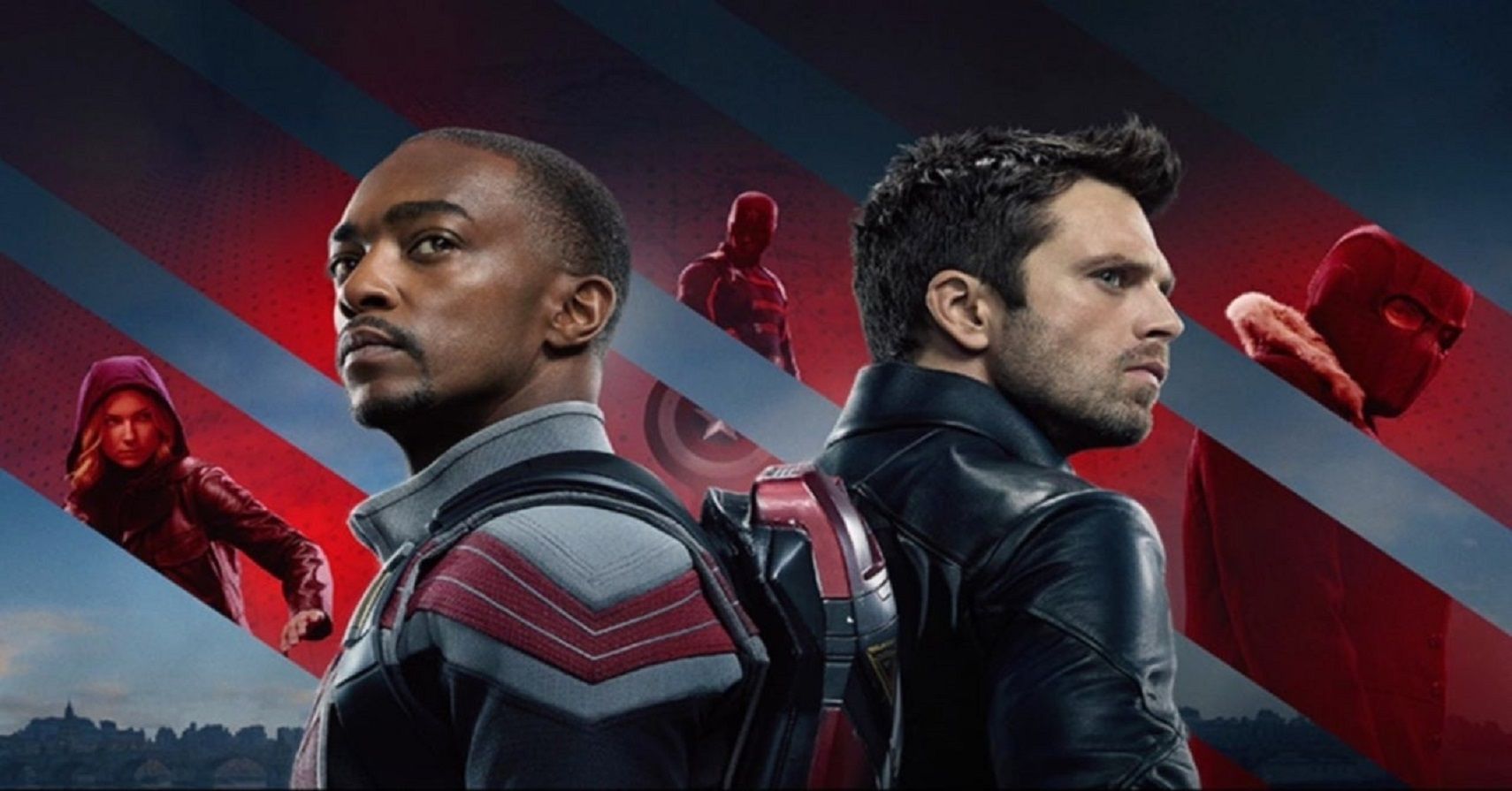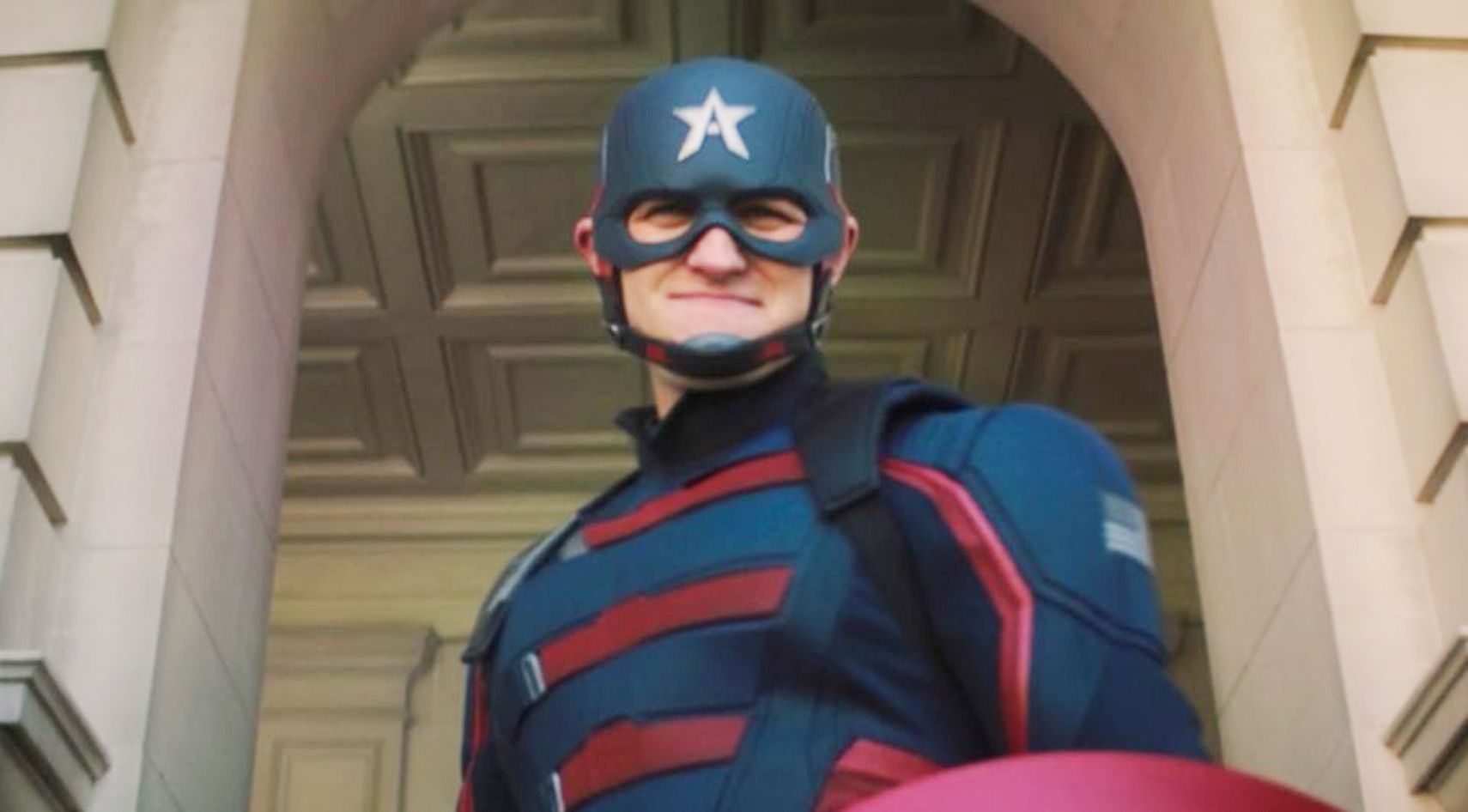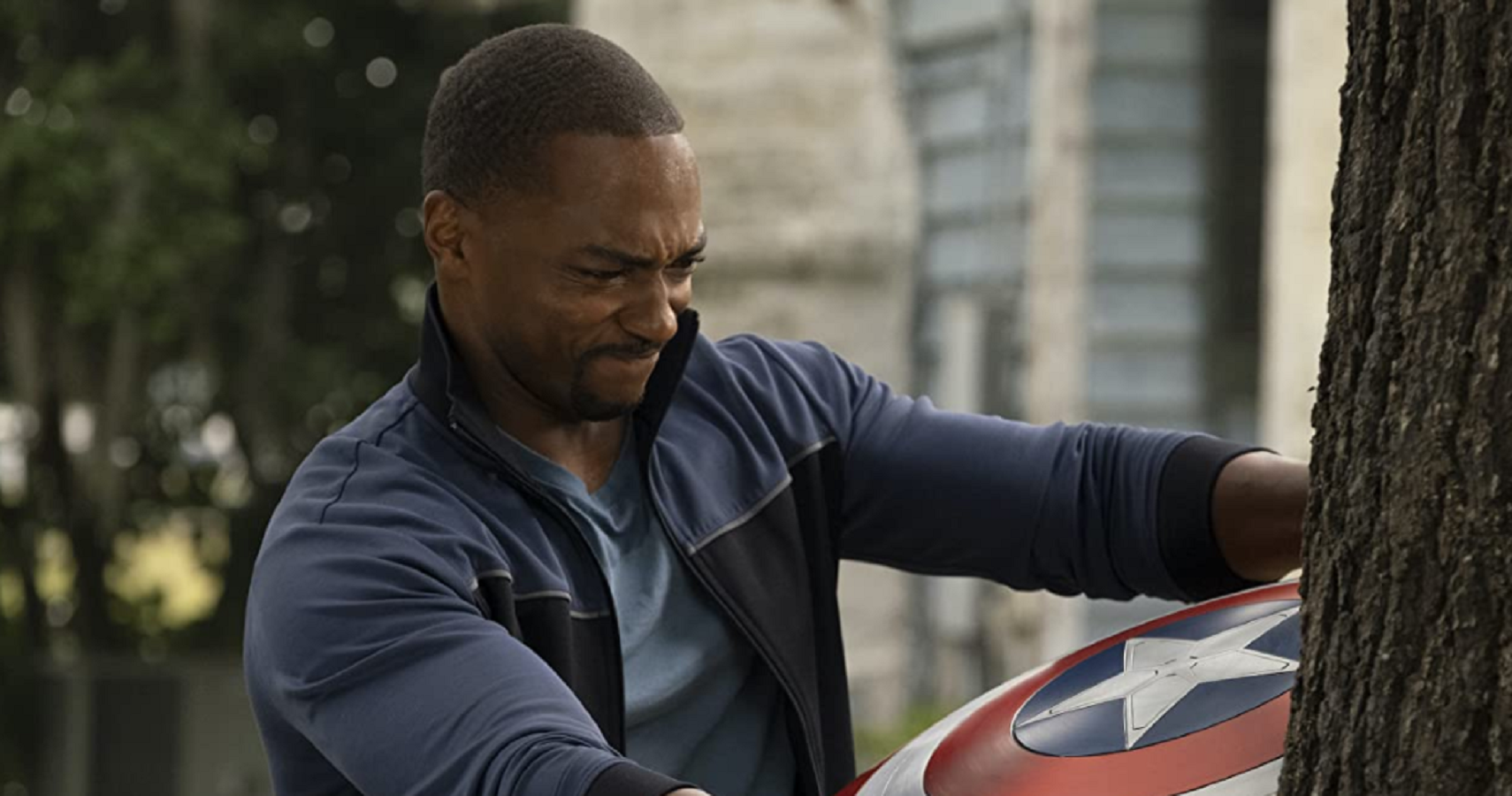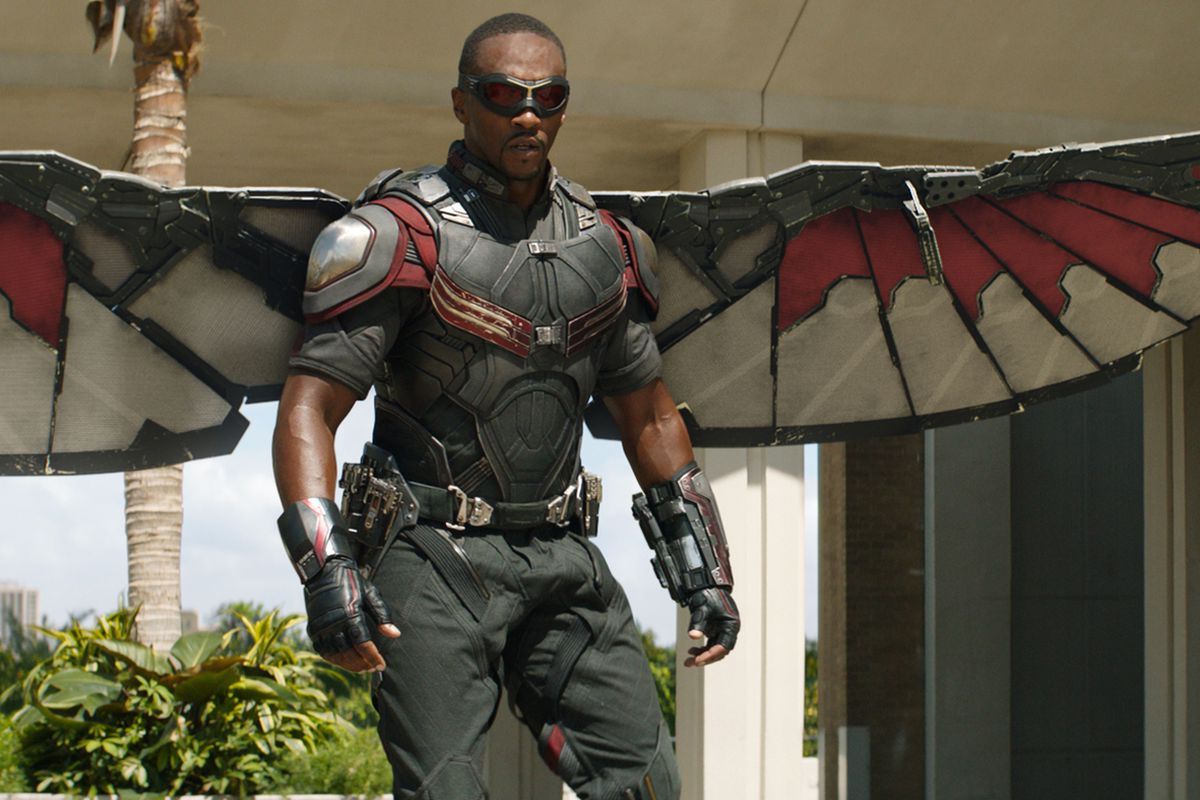WandaVision and Falcon and the Winter Soldier are very different shows, but one of the major distinctions between them is their complexity. You’d think that WandaVision, with its sci-fi sitcom tropes, magical realism, and Too Many Cooks inspiration, would be the complicated one, but instead it’s Falcon and the Winter Soldier that’s a harder sell for newcomers. Ending aside, WandaVision felt very much its own thing, able to exist and tell its story each week without needing to consider its place in the wider canon. Falcon and the Winter Soldier isn’t so lucky, and as a result, it’s bringing in far too many villains without much chance of ever making them all stick.
Let’s count the villains we have so far. The central foes are the Flag Smashers, led by Karli Morgenthau - more on them and how the show has already done them wrong later. On top of these, we have the new Captain America, who is not an out-and-out villain, but clearly nothing like Steve Rogers, and is at the very least a militaristic antagonist for Sam and Bucky. There’s also Zemo, currently on Sam and Bucky’s side yet clearly a villain at heart, minor foe Batroc the Leaper, and the ominous presence of the Power Broker, who may or may not be Sharon Carter. All this, and you could still argue that the main villain in Falcon and the Winter Soldier is racism in the USA.
Using an MCU story, in the current political climate, to explore the history of racism within America is a fascinating angle to take, especially for a story led by Sam Wilson and featuring Battlestar and Isaiah Bradley. We’ve seen Sam and his sister struggle to get a bank loan, and Sam almost be arrested for raising his voice in the street - only for both the bank teller and arresting officers to then ask Sam to perform for them as the amazing dancing Avenger. With Isaiah Bradley, the hidden Black supersoldier, clearly set to return for a bigger part in the show’s second half, race will no doubt continue to be a huge part of Falcon and the Winter Soldier’s storytelling - so why are so many villains getting in the way of it?
Batroc the Leaper won’t have much of an impact, and if the Power Broker is not Carter, they might not feature much either, but Cap, Zemo, and the Flag Smashers will all receive a lot of oxygen going forward, and that’s a lot of villains to balance out, especially when none of them feel particularly linked to the show’s core theme.
With Captain America, it does seem as though one of the reasons Falcon was encouraged to step aside was because the Department of Defense wanted a white Cap to be the face of America, but the show hasn’t really focused on this. Falcon has been painted as hesitant to take the shield or the mantle, and willingly choosing to give it up - although he did expect it to go to a Steve Rogers memorial, not be given to somebody else. It seems like John Walker was chosen over Sam because of his militaristic, authoritarian streak, not his race. With Battlestar by his side, he even has a built in Black Friend defence. Zemo, meanwhile, has no real link to these themes. A former Sokovian baron, he hates superheroes of all castes. He can prop up the theme, for example when he describes “the African-American experience” despite being a white European, but he’s never going to truly represent it. Ditto for Batroc and the Power Broker, if either of them do indeed feature.
That leaves Karli and the Flag Smashers, who could have represented this theme perfectly, but the show has already botched them. They want a world without borders, which is apparently a very dastardly thing to want. It’s the tone you’d expect from the MCU, especially given the show opened with what amounted to a commercial for the Air Force followed by a vaguely Middle Eastern person thanking Sam and the Avengers for protecting their homes. A clearer “the Iraqis should be grateful” metaphor you will not find.
The Flag Smashers are unregulated supersoldiers, and I understand that this makes them dangerous, but mysterious foreigners who are powerful and scary beasts that want to put an end to the American way of life is the perfect backdrop to reckon with the USA’s history of racism. If you want international borders, that’s a tacit admission that you know they benefit you and harm others, and you feel you and the people born near you are more deserving of rights or food or shelter than other people. Unfortunately, much like how Black Panther twisted Killmonger’s anti-imperialism into pro-facism, the Flag Smashers have not just been helping out refugees or the ghetto-ized citizens of a post-Blip world; they’re also terrorists blowing up buildings and killing innocents, because “it’s the only language people understand.” The Flag Smashers are a far less effective reflection of US racism when they are undeniably the bad guys, and not just different people with another point of view.
Even taking race out of it, there are a few too many villains to ever tell a satisfying story when we know the ending is going to come down to a high-octane fight where Sam and Bucky learn to trust each other and eventually win. And besides, we shouldn’t take race out of it. It’s by far the most interesting angle in the show, one worthy of deeper exploration still, and considering we already know the basic shape of the ending, it’s an extremely relevant theme that keeps the show from being a stale recreation of all the others before it.
Falcon and the Winter Soldier feels like it could be the MCU’s most important story to date, despite some typically problematic tropes, but someone involved in production doesn’t seem to have faith in its more subtle choices, so now it’s throwing villains at us every episode in the hope that something sticks.




